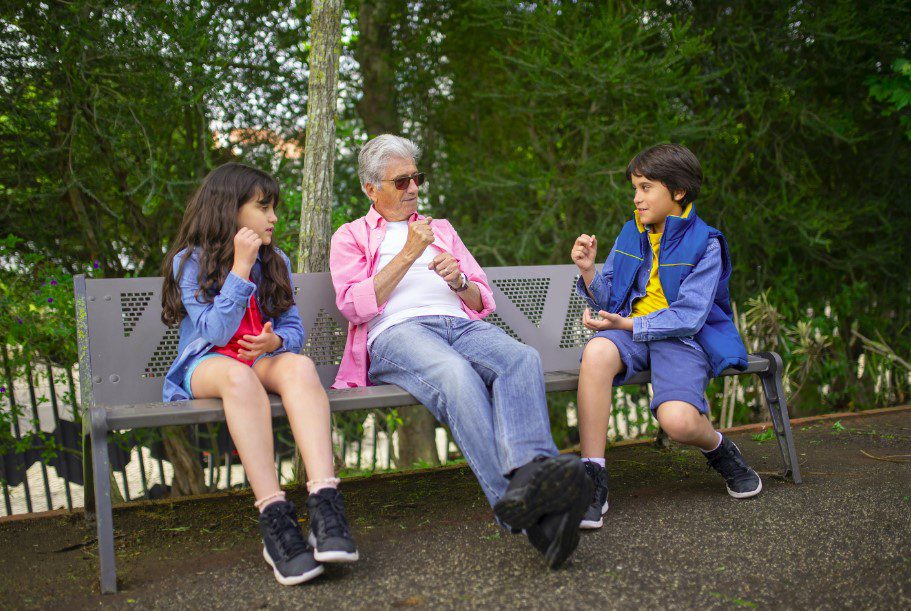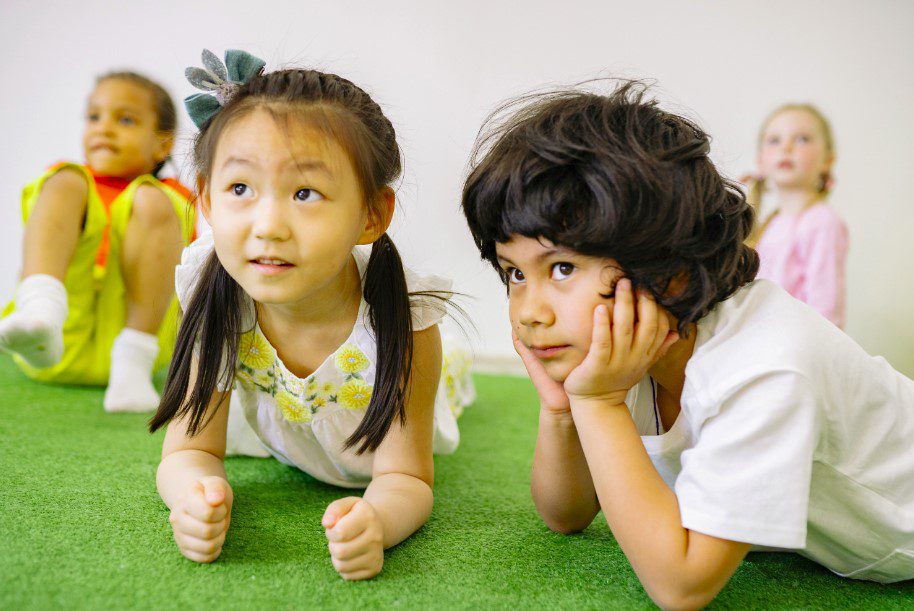In a world that is filled with constant distractions and fleeting attention spans, the art of active listening often takes a backseat in our interactions – children too.
As parents and educators, we have a profound responsibility to equip them with effective communication skills that will serve them well throughout their lives.
Active listening, a cornerstone of meaningful interactions, holds the key to unlocking this kind of communication and deeper connections. It fosters empathy, and prepares them for strong interpersonal relationships.
What is Active Listening?
‘Active listening‘ means, as its name suggests, actively listening. That is fully concentrating on what is being said rather than just passively ‘hearing’ the message of the speaker.
SKILLSYOUNEED
Active listening is a communication technique that involves fully engaging with the speaker and paying complete attention to both their words and non-verbal cues.
It goes beyond simply hearing what is being said and encompasses understanding the underlying emotions and intentions behind the spoken word. It involves observing the speaker’s body language, facial expressions, and tone of voice.
When actively listening, individuals make a conscious effort to be fully present in the conversation. They avoid distractions, such as checking their phones or thinking about what to say next, and instead give their undivided attention to the speaker.
By paying attention to these non-verbal cues, active listeners gain a deeper understanding of the speaker’s emotions, attitudes, and underlying messages.
Additionally, active listening goes beyond receiving information; it involves responding in a way that demonstrates understanding and engagement. Active listeners often provide verbal and non-verbal feedback to show that they are actively engaged in the conversation.
This can include nodding, maintaining eye contact, asking relevant questions, and paraphrasing or summarizing the speaker’s points to ensure accurate understanding.
The Importance of Active Listening in Children

As mentioned earlier, active listening is a necessary skill when it comes to the development of children’s communication skills:
1. Builds Stronger Relationships
Active listening in children serves as a foundation for establishing meaningful connections. When children actively listen to others, they demonstrate genuine interest and empathy, leading to stronger bonds with peers, teachers, and family members.
Active listening fosters a sense of trust, respect, and mutual understanding, which are essential elements in building positive relationships. By actively engaging with others through attentive listening, children create an environment where meaningful connections can thrive.
2. Enhances Cognitive Abilities
Active listening in children has a profound impact on their cognitive development. By actively engaging with information, it stimulates various cognitive processes, such as critical thinking, problem-solving, and comprehension skills.
When children are actively listening, they are fully present and focused on the information being presented to them. This heightened level of engagement enables them to process and retain knowledge more effectively. They are able to analyze and evaluate the information, think critically about it, and apply their problem-solving skills. All these allow them to make connections and draw meaningful conclusions.
Active listening not only enhances their understanding of the content but also strengthens their overall cognitive abilities, setting them up for success in academic pursuits and beyond.
3. Improves Verbal and Non-Verbal Communication
Effective communication encompasses both verbal and non-verbal elements, and active listening plays a vital role in helping children develop proficiency in both areas.
By actively listening, they become more attuned to the nuances of non-verbal cues, such as body language, facial expressions, and tone of voice. They learn to interpret these cues and understand the underlying emotions and intentions behind the communication.
Through active listening, children also learn how to express their own thoughts and emotions clearly and effectively.They learn to become more mindful of their own communication, choosing their words carefully and using appropriate non-verbal cues to convey their message accurately.
4. Promotes Empathy
Active listening serves as a catalyst for cultivating empathy in children. This enables them to truly understand and connect with others on a deeper level.
When they actively listen, they open themselves to stepping into the shoes of others and experiencing the world from their perspective. This heightened empathy allows them to develop a profound understanding of different cultures, experiences, and viewpoints.
Through active listening, they also expand their knowledge by actively seeking to learn from others. They embrace diverse perspectives and actively challenge their own biases and preconceived notions.
Actively listening enables them to engage in meaningful conversations that go beyond surface-level interactions. It encourages them to ask questions, seek clarification, and truly comprehend the thoughts and emotions being expressed by others.
5. For Personal and Professional Growth
Active listening is a key attribute of effective leaders, professionals, and individuals seeking personal growth. It enables children to gather valuable information, learn from diverse perspectives, and make informed decisions. Active listeners are better equipped to adapt, collaborate, and succeed in various environments.
How to Foster Active Listening in Children

Now that we understand the significance of active listening, let’s explore some strategies that can help foster this skill in children:
1. Lead by Example
Modeling active listening is essential as children learn best through observation. Parents and educators, must demonstrate attentive and respectful listening in their own interactions.
By actively engaging and demonstrating our genuine interest in others, we set a positive example for children to follow. When they see us practicing active listening, it helps them understand the importance of this skill and encourages them to incorporate it into their own communication.
2. Create a Supportive Environment
Creating a safe and supportive environment is crucial in nurturing active listening skills in children. When children feel heard, valued, and respected, they are more likely to express themselves freely and engage in active listening with others.
Encourage open communication, establish trust, create opportunities for dialogue, and teach conflict resolution skills. By fostering such an environment, we lay the groundwork for them to develop their active listening abilities.
3. Teach Empathy and Perspective-Taking
Empathy plays a pivotal role in active listening, and it is important to help children develop this essential skill. One effective way to foster empathy is by teaching them to see situations from different perspectives. Encourage them to step into the shoes of others and consider how they might be feeling in a given situation.
Guide them in expressing empathy through their words and actions. Encourage them to actively listen to others. They should show genuine interest in their thoughts and emotions. Teach them to ask questions, offer support, and provide comforting words when someone is going through a challenging time.
Additionally, help children understand the power of non-verbal communication in expressing empathy. Encourage them to use appropriate body language, such as maintaining eye contact, nodding, and offering a comforting touch when appropriate. These non-verbal cues can convey understanding, support, and compassion.
4. Read With Children
Reading wide enhances active listening by improving vocabulary, concentration, analytical skills, empathy, contextual understanding, memory retention, communication, critical thinking, and verbal fluency. Regular reading habits lead to more effective and empathetic communication in various settings.
Reading with children provides a wonderful opportunity to enhance active listening skills too. Choose engaging books, encourage predictions, pause for reflection, discuss story elements, visualize the story, ask for retelling, and explore different perspectives.
These practices help develop their active listening abilities, comprehension skills, imagination, and empathy.
5. Practice Mindfulness
Mindfulness exercises can significantly enhance children’s ability to engage in active listening. Encourage them to focus on the present moment, eliminate distractions, and be fully present when someone is speaking. Simple activities such as deep breathing or guided visualization can help them develop mindfulness skills.
6. Provide Constructive Feedback
Offering constructive feedback is crucial in helping children improve their active listening skills. When providing feedback, emphasize the positive aspects of their listening behavior and provide specific suggestions for areas of improvement. Encourage them to reflect on their listening habits and set goals for growth.
Conclusion
By fostering active listening in children, we lay the foundation for their success in building relationships, understanding others, and navigating the world around them. As parents and educators, let us embrace the power of active listening and guide our children towards a brighter future.





Leave a Reply